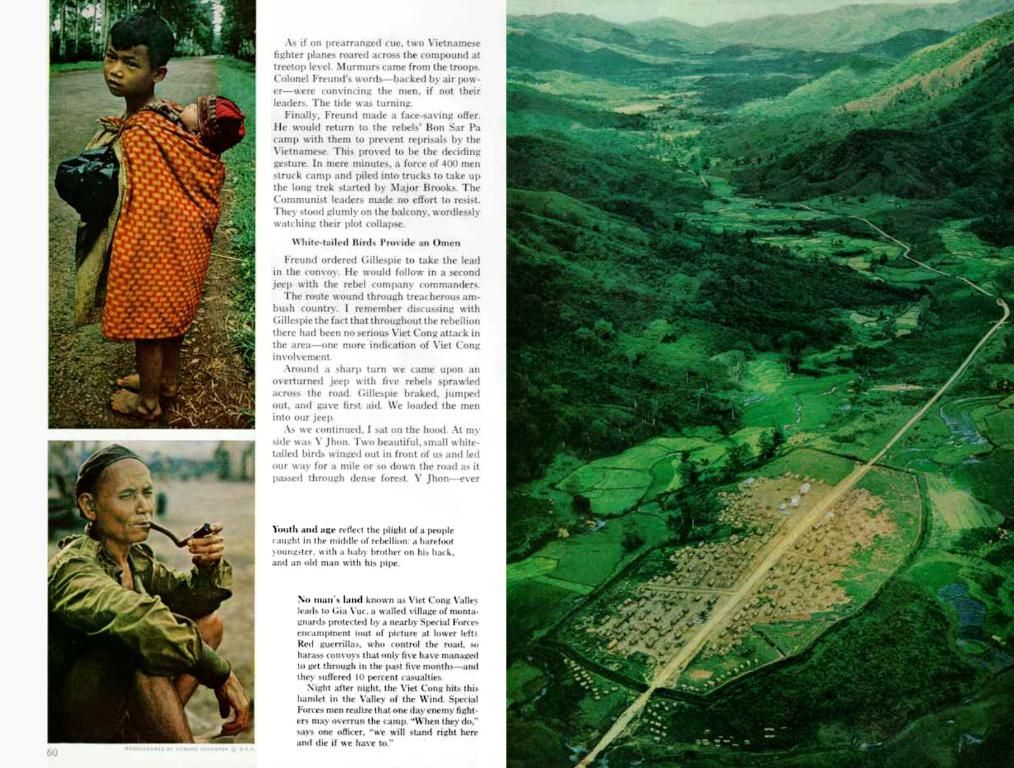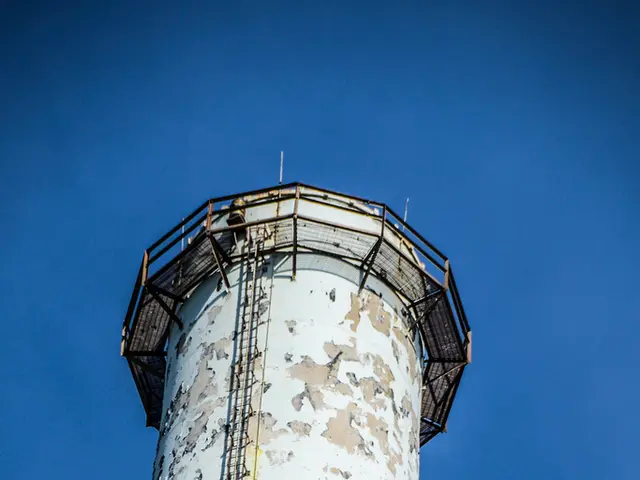Inquiry into Coordination: Israel's Reoccupation of Rafah Crossing - Did a Previous Agreement Take Place with Egypt?
In the heat of the moment, Israel's seizure of the Rafah crossing on the Palestinian side has raised eyebrows, questioning Israel's compliance with key agreements with Egypt. Some wonder if Israel acted without Egypt's blessings, potentially jeopardizing a September 2005 agreement, known as the Philadelphi Accord, and the 1979 Egypt-Israel peace treaty.
The Philadelphi Accord, penned before Israel's military evacuation from Gaza in 2005, set up a 14km-long and 100m-wide demilitarized buffer zone, the Philadelphi Corridor, along the entire border between Gaza and Egypt. The corridor allowed up to 750 Egyptian border guards to patrol the border for counterterrorism and non-military purposes, such as preventing smuggling and infiltration. According to the 1979 peace treaty, Israel could only deploy four infantry battalions, their military installations, and field fortifications, along with UN observers, but not tanks, artillery, or anti-aircraft missiles, all unless both Egypt and Israel agreed to a change in terms.
The same goes for the Philadelphi Accord—amendments require mutual agreement, and it outlines a coordination and liaison system for real-time intelligence exchange between both sides. It's still unclear whether any pre-planning took place ahead of Tuesday's crossing occupation, marking the first time since 2005 that Israel sets foot in the Philadelphi Corridor. Israeli Prime Minister Benjamin Netanyahu made his stance clear in January, emphasizing that Israel must reoccupy the corridor as part of their campaign against Hamas.
However, Egypt's government called the reoccupation a breach of the peace treaty. An anonymous Egyptian military source told MEE, "There has been no operational coordination regarding the invasion of Rafah." The source added that while officials from both Egypt and Israel keep in touch to ensure mutual security, Egypt views the situation as a "serious escalation but not a surprise."
Egypt has yet to officially comment on whether Israel has violated either the peace treaty or the 2005 agreement. International Crisis Group analyst Joost Hiltermann sees the seizing of the Philadelphi Corridor as a breach of the 2005 agreement, an addendum to the 1979 treaty. Egypt's Foreign Minister, Sameh Shoukri, has consistently maintained that the peace treaty would not be suspended, even in the face of repeated Israeli threats to invade Rafah.
A Split City
Historically, Rafah was one city, partitioned into an Ottoman-controlled Palestinian side and a British-controlled Egyptian side in 1906. Israel gained control of Rafah following the 1967 Middle East war and the occupation of the Sinai peninsula and the Gaza Strip. However, the 1979 peace treaty led to Israel's withdrawal from the Sinai, resulting in the creation of the Rafah border, effectively reseparating the city.
In 2005, Israel withdrew its forces and settlers from Gaza but retained control of the Rafah crossing under the Agreement on Movement and Access (AMA) with the Palestinian Authority. The AMA remained in place until it was suspended by Israel in 2007 following Hamas's takeover of Gaza. Since then, the Rafah crossing has been under joint Egyptian and Hamas control.
Consequences
The Rafah crossing closure affects the 1.7 million Palestinians in Gaza, which relies heavily on Egypt for supplies like food, medicine, and fuel. Palestinians fear that Israel's control of the border will lead to further restrictions and hardships. Analysts warn that the situation poses a threat to peace efforts and raises tensions in the region.
In the larger picture, the seizure of the Rafah crossing has significant implications for the Philadelphi Accord and the 1979 Egypt-Israel Peace Treaty. Israel's control of the crossing, and by extension the Philadelphi Corridor, may impede humanitarian assistance, limit trade, and ultimately challenge the regional peace and stability. Diplomatic efforts are crucial to ensure both agreements are upheld and respected to maintain balance and security in the region.
Shahenda Naguib contributed to this report from Cairo
- The recent seizure of the Rafah crossing on the Palestinian side by Israel has sparked concerns about Israel's adherence to agreements with Egypt, particularly the Philadelphi Accord and the 1979 Egypt-Israel Peace Treaty.
- The Philadelphi Accord, signed before Israel's military withdrawal from Gaza in 2005, established a demilitarized buffer zone, the Philadelphi Corridor, that allowed Egyptian border guards to patrol for counterterrorism and prevent smuggling.
- According to the peace treaty, Israel can only have four infantry battalions, military installations, and field fortifications in the region, with no tanks, artillery, or anti-aircraft missiles, unless both Egypt and Israel mutually agree on a change.
- It is still uncertain if any pre-planning took place before Tuesday's crossing occupation, marking the first time since 2005 that Israel has set foot in the Philadelphi Corridor, despite Israeli Prime Minister Benjamin Netanyahu's stance on reoccupying the corridor.
- Egypt's government has deemed the reoccupation a breach of the peace treaty, while officials from both nations maintain contact for mutual security purposes, but view the situation as a "serious escalation."
- International analyst Joost Hiltermann sees the seizure of the Philadelphi Corridor as a violation of the 2005 agreement, an amendment to the 1979 treaty, and Egypt's Foreign Minister, Sameh Shoukri, has consistently reiterated that the peace treaty would not be suspended despite repeated Israeli threats.







